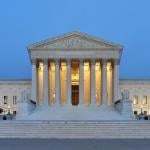 Back a month ago or so I posted on some back and forth between two philosophers on the New York Times website regarding naturalism and the basis for naturalism What is Naturalism by Timothy Williamson a reaction, Why I am a Naturalist by Alex Rosenberg, and a response by Timothy Williamson On Ducking Challenges to Naturalism.
Back a month ago or so I posted on some back and forth between two philosophers on the New York Times website regarding naturalism and the basis for naturalism What is Naturalism by Timothy Williamson a reaction, Why I am a Naturalist by Alex Rosenberg, and a response by Timothy Williamson On Ducking Challenges to Naturalism.
Philosophers shouldn’t have the last word on science, naturalism, and religion, however, and about the same time Alan Lightman posted a nice article entitled Does God Exist? on the Salon website. Lightman is a physicist and novelist, currently an adjunct professor of humanities, creative Writing, physics at MIT (faculty page). Lightman’s article received a response much like Williamson’s. In this case Daniel Dennett felt compelled to defended the atheist position in an essay When Atheist Fib to Protect God where he chides Lightman for being too easy on religion and believers. Lightman responded with a third short piece of his own Why Atheists Should Respect Believers.
These essays were brought to my attention this week through a commentary in the Sydney Morning Herald by Barney Zwartz, Science as Religion. This opinion piece makes an important point – especially important in the context of the discussion noted above and many on more local and personal levels. For many in our increasingly secular west scientific naturalism is the new religion. You can argue about how I define “religion” but scientific naturalism is a deep and central worldview that defines acceptable thinking, tells a story, and is founded on an central assumption – not just that there is no God, but that the natural world with is intelligible natural laws is the sum total of existence. Zwartz brings this out reflecting on Lightman’s first essay:
It is axiomatic among many philosophers that the foundations of our various worldviews, the first principles, have to be assumed for the project of our reasoned lives to operate, and these principles are often unprovable. For theists, this tends to be the existence of God (that’s not to say there are no reasons for belief, which I could not concede, but that religious commitment does not depend purely on reasons). For atheists, the first principle tends to be a commitment to reason or to science.
What is the foundation of the Christian world view?
How does this compare with the functional worldview in the West?
Zwartz refers to Lightman’s discussion of what he calls the “Central Doctrine” that “all properties and events in the physical universe are governed by laws, and those laws are true at every time and place in the universe.”
Thus, the doctrine goes, though we do not know all the fundamental laws now, and what we do know may change (as Einstein’s law of gravity replaced Newton’s), they exist and are in principle discoverable by humans. But of course, as Lightman admits, this cannot be proved. It is, as I said, a leap of faith.
Science becomes as religion when this central doctrine becomes the foundation of all knowledge. Zwartz concludes:
So another scholar, Bruce Lincoln, says that, rather than a singular thing or essence, religion is better understood as a form of discourse that makes a claim to a particular kind of authority. What makes a discourse religious is when it claims an authority that is believed “to transcend the human, temporary and contingent, and claims for itself a similarly transcendent status”. Without anyone necessarily intending that to happen, I suggest that for many a belief in science has slipped into that category.
Belief in science has slipped into a category of dogmatic faith not to be challenged. This is a significant points of conflict in our culture and one that I think will grow – among educated nonscientists even more quickly than among scientists. For many science has become religion and dissent is not to be tolerated lightly. It is a place where pastors and those active in college ministry should be particularly aware. This is the environment that is shaping an increasingly large portion of our intellectual discourse. It is in the air and in the water. Science is not a serious challenge for Christian faith – all of the supposed conflicts can be resolved – but not by defensive reaction and defending the boundaries. Belief in science is a serious challenge that faces many and we must be prepared with an answer and an approach.
Lightman concluded his response to Dennett:
We live in a highly polarized society. We need to try to understand each other in respectful ways. To that end, I believe that we should make room for both spiritual atheists and thinking believers.
Truth isn’t found by dogmatic assertion – in any kind of “religion” but in an openness that takes in all the data and searches for answers. This is a lesson we should all take to heart.
What do you think?
How does belief in science slip into religion?
If you wish to contact me directly you may do so at rjs4mail[at]att.net.
If interested you can subscribe to a full text feed of my posts at Musings on Science and Theology.











